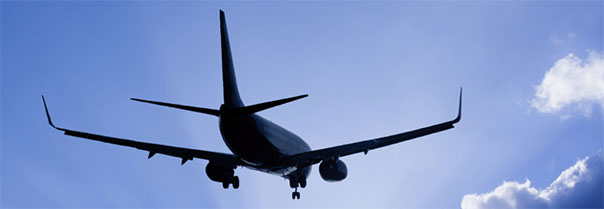
What's
New
- Winners Gallery
- Katrina's Editorials
-
Health and Fitness
-
Whole Motion Fitness
Don't Just Sit There -
At Home & On the Road
Sleep Better -
Tips for Travelers
Fitness Anywhere -
Unconventional tips
Coping with High Altitude -
Rituals for Sleep & Clear Thinking
Beating Jet Lag - Spa Picks
-
Refresh your senses
Bardesonno, CA -
Just Breathe
Post Ranch Inn, Big Sur, CA -
A Life Enhancing Experience
Canyon Ranch, Tucson, AZ -
Restore, Relax, Re-balance
Miraval, Tucson, AZ -
A Wonderland for Fitness
Devil’s Thumb Ranch
-
Whole Motion Fitness
- Special Offers
- Field Experts
- Travelogs
- Newsletters
- Press
- MLS Signature Trip: Arctic Adventure
Health and Fitness
Beating Jet Lag
There has been a lot of press lately about jet lag. According to new research, sleep is not the only thing disturbed by jet lag – it also reduces cognitive ability (memory). In a recent study, hamsters were subjected to jet lag by advancing their day and night schedule by six hours every three days for nearly a month. The hamsters’ cognitive abilities were still impaired even after 28 days on a back-to-normal schedule. When the brain is tired, it can’t function at its highest capacity – so it’s important to keep the effects of jet lag to a miminum, and return as soon as possible to a normal routine.
Most of us know what it’s like to have jet lag wreak havoc on our sleep schedule, along with causing grogginess and sometimes nausea. This phenomenon can put a damper on the first few days of your trip and affect you for days after your return home. The more time zones you cross, the worse it is. Keep in mind your brain is an organ that likes routine and is equipped with a circadian clock. We’re wired to expect a 24 hour day, and when our day extends far beyond that, we get symptoms that remind us we are not at home. A tired body and brain can cause real problems on the road, especially if you are a business traveler and are expected to be “on” during meetings and presentations.
If you’re an experienced traveler, you probably know the traditional remedies such as changing your sleep time prior to the trip, and avoiding alcohol and caffeine. I have tried these suggestions, and unfortunately, I still have trouble with sleep during travel. I needed an unconventional approach, so I turned to Jerzy Gregorek, who shared his secrets for staying restful while traveling. Jerzy and his wife Aniela are the authors of The Happy Body: The Simple Science of Nutrition, Exercise and Relaxation. They are both professional coaches and personal trainers who for 25 years have worked with executives, celebrities and clients from all walks of life. Their focus is helping people live energetic, healthy lives free of pain and medication.
Jerzy believes jet lag can be greatly reduced if you follow a few simple practices. He also stresses the importance of routine (see note above about your brain and circadian rhythms). His ideas are not typically found in books and on the Web, but they have worked for Jerzy and his clients. “It is important to create rituals in your life and apply them when you travel, to ease the stresses of flying and changes to diet and environment,” he explains. In his book, Jerzy outlines a fitness ritual which involves 30 minutes of mindful, non-inflammatory exercises that can be done anywhere.
Jerzy begins his trip by pre-loading books on his iPod. “Noise, light and stressors of flying are stimulants, and can be reduced by tuning them out,” he says. He closes his eyes and listens to books rather than reading. The books take you away and allow you to visualize without straining your eyes. You may doze for a few minutes here and there, but that is just fine. You might also load a playlist that you enjoy listening to. My husband and I really like the French Electronica group Air – try the albums Moon Safari or Premiers Symptômes. (Both downloadable from iTunes).
“After you land, keep in mind that your brain may be tired, but your body likely will not be,” explains Jerzy. “You need to start to use your body again, as it was idle for hours while you sat on a plane.” When you arrive at your destination, and before you open the door to your room, think about the first thing you are going to do when you enter. Jerzy advises not turning on the TV or checking your messages. Instead, grab a towel from the bathroom and lay it out on the floor. You can use water bottles in the room as weights, if you like, but more important is to start using your body and gently stimulating your muscles. A gentle, physical routine will start burning any negative chemicals that have made you bloated, fatigued and possibly nauseous from travel. You can find Jerzy’s routine in his book, or you can perform yoga, as long as your muscles get stimulated from the work. (Using cardio equipment or going for a run are not good ideas right after you land, as you may become more inflamed and over-stimulated.) You will want to end with a few moments of deep breathing and meditation. You are now ready for sleep or to enjoy whatever the day brings you.
Jerzy also points out that the quality of sleep is more important than the quantity, and advises clients not to obsess about the hours of sleep. “You should fall gently into sleep and awake refreshed.” Now that would be a nice change!

Be well,
Sandra Hahamian
About Sandra Hahamian:
Sandra Hahamian is a Certified PTA Global Personal Trainer with special emphasis in 3-dimensional movement. She is also a certified trainer in PowerPlate vibration technology as well as Cyclops Spin Bikes. She has trained extensively in Pilates, yoga, using body resistance and numerous ballet barre methods. Over the last 4 years, Sandra has experimented and created custom fitness classes for the world’s largest companies, celebrities and numerous clients in Silicon Valley. She has also been a lifelong traveler and is a connoisseur of spa and fitness options while on the road.
Sandra’s understanding of the human body through her many years of fitness and education surrounding physical therapy have supported the foundation of her fitness work Her classes challenge, define and strengthen the body using balance and resistance in a variety of integrated exercises. Sandra is constantly innovating her programs and is currently focusing on integrated body movements for her clients who spend hours in front of a computer as well as for women over 40 to prevent injury.
Sandra lives in Northern California with her husband and two teenage children.
These materials are for educational and informational use only and should be used in consultation with your doctor and solely at your own risk. See additional information.
Copyright 2013 MyLittleSwans, LLC. All rights reserved. My Little Swans, the logo and Share a world of experience are registered Trademarks of MyLittleSwans, LLC. Use of this site constitutes acceptance of our Terms of Use and Privacy Policy.

